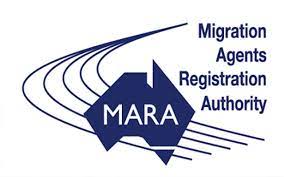What are the requirements to immigrate to Australia?
Our team of Registered Migration Agents are here to help you with visas and immigration questions. Trust us to guide you through the process and provide expert advice. We can assist with eligibility criteria and any other immigration-related inquiries. Let us help you achieve your Australian dream.
Are you curious about the prerequisites for immigrating to Australia?
Migrate 2 Oz are here to help.
Before we dive into the specific requirements, it’s important to understand the different immigration categories available in Australia. The two main categories are skilled migration and family migration, but there are also other visa options for business owners, retirees, and students.

Skilled Migration
Skilled migration is for individuals who possess the skills and qualifications that are in high demand in Australia. This category includes the skilled independent visa, the skilled nominated visa, and the skilled regional visa. Each of these visa types targets different groups of skilled workers and has its own set of criteria.

Skilled Independent Visa
(Subclass 189)
The Skilled Independent Visa is designed for workers who are not sponsored by an employer, a state or territory, or a family member. Applicants must submit an Expression of Interest (EOI) and be invited to apply.

Skilled Nominated Visa
(Subclass 190)
This visa requires nomination by an Australian state or territory government. It’s suitable for individuals who have particular skills that are needed in specific regions of Australia.

Skilled Regional Visa
(Subclass 491)
The Skilled Regional Visa is for people who are willing to live and work in regional or low-population growth metropolitan areas of Australia. It provides provisional residency and a pathway to permanent residency.
Family Migration
Family migration is for individuals who have family members in Australia that are willing to sponsor them. This category includes the partner visa, parent visa, and child visa. These visas allow families to reunite and offer various pathways depending on the relationship.

Child Visa
(Subclass 101/802)
Child Visas are for dependent children, orphan relatives, or adopted children of an Australian citizen or permanent resident. The application process varies depending on the child’s circumstances.

Parent Visa
(Subclass 103/143)
Parent Visas allow Australian citizens or permanent residents to sponsor their parents to come to Australia permanently. These visas have long processing times and can be expensive.

Partner Visa
(Subclass 820/801)
The Partner Visa is for individuals who are married to or in a de facto relationship with an Australian citizen or permanent resident. It initially provides a provisional visa leading to permanent residency.

Business and Investment Visas
Business and Investment Visas are for successful business owners or investors who wish to establish business operations in Australia or invest in Australian businesses.
Business and Investment Visas are tailor-made for astute business owners and savvy investors who are keen to initiate their entrepreneurial ventures in the land down under or inject capital into existing Australian businesses. At Migrate 2 Oz, we understand the importance of these visas in paving the way for economic growth and prosperity. Whether you aspire to establish your own business operations or seek lucrative investment opportunities, our team of experts is here to guide you through the intricate process of securing a Business or Investment Visa, ensuring a seamless transition to the thriving Australian business landscape.

Student Visas
Student Visas are for individuals who want to study in Australia. These visas often provide a pathway to temporary and eventually permanent residency.

Retirement Visas
Retirement Visas are for older individuals who want to retire in Australia and have the financial means to support themselves without working.

Other Visa Categories
In addition to skilled and family migration, there are other visa categories that might be suitable depending on your situation.
General Requirements for Immigration
Age
The minimum age requirement is 18 years old. Skill-based visas to Australia usually have an age limit of 44, with limited options after turning 45. Age also impacts the points awarded in the immigration points test, with younger applicants scoring higher, particularly between the ages of 25 and 32.
Health and Character
All applicants must meet certain health and character requirements. This includes providing a medical certificate and police clearance certificate. Individuals with certain medical conditions or criminal records may be refused a visa.
Medical Examination
A comprehensive medical examination is required to ensure that applicants do not have any health conditions that would pose a threat to public health or cause significant costs to the Australian healthcare system.
Police Clearance
Applicants must provide a police clearance certificate from every country they have lived in for 12 months or more during the past ten years. This is to ensure that they meet the character requirements.
Waivers and Exemptions
In certain cases, waivers or exemptions for health and character requirements may be available. It’s important to disclose all relevant information and seek professional advice on these matters.
English Language Proficiency
To show proficiency, you usually need to take an English test like IELTS. Other accepted tests include OET, TOEFL, PTE, and CAE. The minimum scores needed depend on the visa type, and higher scores can earn more points. Some applicants may be exempt if they are from English-speaking countries or have specific educational qualifications.
Occupation
For skilled migration, you must have an occupation that is on the skilled occupation list. This list is regularly updated and outlines the occupations that are in high demand in Australia.
Skilled Occupation List (SOL)
The Skilled Occupation List (SOL) is a compilation of occupations in demand in Australia. It can change based on economic needs, so it’s important to stay updated. Having your occupation on the SOL is necessary for certain visa programs. Regularly reviewing the updated SOL is crucial to ensure your occupation remains in demand.
Short-term Skilled Occupation List (STSOL)
The Short-term Skilled Occupation List (STSOL) is designated for individuals who possess skills in certain occupations that are in short-term demand in Australia. The list is utilised for the Skilled Regional (Provisional) visa (subclass 489) and the Temporary Work (Skilled) visa (subclass 457). Unlike the SOL, occupations on the STSOL are available for a shorter period and are reviewed and updated regularly to reflect the shifts in the short-term needs of Australia’s economy. Visa applicants should check the STSOL to see if their skills match the current specific regional labour market requirements.
Regional Occupation List (ROL)
The Regional Occupation List (ROL) includes occupations in demand in regional Australia. It’s relevant for individuals interested in the Regional Sponsored Migration Scheme visa (subclass 187) and for the Skilled Regional (Provisional) visa (subclass 489) when sponsored by a family member residing in designated areas. The ROL addresses particular needs of regional Australia, where skills shortages may be more acute, thus promoting the development and growth of these areas. The list is periodically updated, reflecting the evolving economic and workforce strategies aimed at regional development.
Points Test
To be eligible for skilled migration, you must score a certain number of points on the points test. Points are awarded based on factors such as age, English language proficiency, and work experience.
The points test awards points for various criteria, including educational qualifications, work experience in Australia and overseas, partner’s skills, and other factors such as community language skills or studying in regional Australia.
Applicants must score a minimum number of points to be eligible for an invitation to apply for a visa. This threshold can vary depending on the visa subclass and current immigration policy.
Applicants can increase their points by improving their English language skills, gaining additional work experience, or obtaining higher educational qualifications.
Additional Requirements for Skilled Migration
1. Skills Assessment
In order to apply for skilled migration, you must have your skills assessed by the relevant assessing authority for your occupation. This involves providing evidence of your qualifications and work experience.
Assessing Authorities
Different occupations have designated assessing authorities that verify an applicant’s skills and qualifications. It’s important to engage with the correct authority for your occupation.
Assessment Process
The skills assessment process may involve reviewing qualifications, work experience, and sometimes a practical examination or interview.
Validity of Assessment
Skills assessments are usually valid for a specific period, often two or three years. Ensure your assessment is valid when you submit your Expression of Interest (EOI).
2. Expression of Interest (EOI)
To apply for a skilled visa in Australia, you need to submit an Expression of Interest (EOI) through the SkillSelect system. The EOI shows your interest in the visa and helps the government assess your eligibility.
SkillSelect System
SkillSelect is an online system that manages EOIs for skilled migration. It ranks candidates based on their points test scores and other factors.
Updating Your EOI
It’s possible to update your EOI if your circumstances change, such as gaining new work experience or improving your English language proficiency.
EOI Invitation Rounds
Invitations to apply for a visa are issued during periodic invitation rounds. Your chances of receiving an invitation depend on your points score and the number of applicants for your occupation.
3. Invitation to Apply (ITA)
If your EOI is successful, you will receive an Invitation to Apply (ITA) for a skilled visa. The ITA will specify the visa subclass and the number of points you must score to receive an invitation.
Receiving an ITA
After receiving an ITA, you have a limited time to submit a complete visa application, including all necessary documents and fees.
Validity of ITA
An ITA is usually valid for 60 days. It’s important to prepare your application materials in advance to meet this deadline.
Next Steps After ITA
Upon receiving an ITA, it’s advisable to double-check eligibility and ensure that all your documents are accurate and up to date before submitting your visa application.
4. Sponsorship/Nomination
For some skilled visas, you may need to be sponsored by an employer or nominated by a state or territory government. This is usually the case for employer-sponsored visas and certain skilled regional visas.
Employer Sponsorship
Employer sponsorship is for applicants with a job offer from an Australian employer. The employer must demonstrate that they cannot fill the position with an Australian worker.
State or Territory Nomination
Nomination by a state or territory government can provide additional points and increase the chances of receiving an ITA. Each state and territory have their own criteria for nomination.
Obligations of Sponsors and Nominees
Sponsors and nominees have certain obligations, such as providing support to the visa holder and complying with Australian immigration and labor laws.
Additional Requirements for Family Migration
1. Sponsorship
For family migration, you must have a sponsor who is an Australian citizen or permanent resident. This sponsor must be willing to provide financial support for you during your initial settlement in Australia.
Eligibility of Sponsors
Sponsors must meet certain eligibility criteria, such as being over 18 years old and meeting income requirements, to ensure they can support the visa applicant.
Sponsorship Undertaking
Sponsors must sign an undertaking to provide support for the visa applicant for a specified period. This includes financial support and accommodation if necessary.
Sponsorship Limitations
There may be limitations on how many people a sponsor can support at one time, and past sponsorship history may impact eligibility to sponsor additional family members.
2. Relationship
You must be in a genuine and ongoing relationship with your sponsor if applying for a partner visa. For parent and child visas, you must provide evidence of your relationship with your sponsor.
Evidence of Relationship
Applicants must provide evidence of their relationship with their sponsor, which can include joint financial documents, cohabitation evidence, and statements from friends and family.
Relationship Duration
The duration and nature of the relationship can affect the application. For instance, de facto partners may need to demonstrate a 12-month cohabitation period.
Relationship Status Changes
Changes in relationship status, such as marriage or the birth of children, should be promptly reported to immigration authorities as they can affect visa processing.
3. Balance of Family Test
For parent visas, you must pass the balance of family test. This means that at least half of your children must be living in Australia as permanent residents or citizens.
Calculating the Balance of Family
The balance of family test calculates the number of your children who are lawfully and permanently residing in Australia versus those living elsewhere.
Exceptions to the Test
There are very few exceptions to the balance of family test, and it’s one of the most critical criteria for parent visa applications.
Providing Evidence
Applicants must provide evidence to support their claims, including the residency status of all their children, which may require official documents from various countries.
Tips for a Successful Immigration Process
Seek Professional Advice
The immigration process can be complex and overwhelming, so it’s always a good idea to seek professional advice. An immigration consultant can help you navigate the requirements and guide you through the process.
Choosing a Registered Migration Agent
Ensure that any professional advice you seek is from a registered migration agent. They are legally authorised to provide immigration assistance in Australia.
Benefits of Professional Advice
Professional advice can help you understand the nuances of the immigration process, avoid common mistakes, and potentially expedite your application.
Legal Implications
Incorrect advice or failure to comply with immigration law can have serious legal implications, including visa refusals or cancellations.
Start Early
The immigration process can take a significant amount of time, so it’s important to start early. This will give you time to gather all necessary documents, complete any required assessments, and wait for visa
Review Eligibility Regularly

